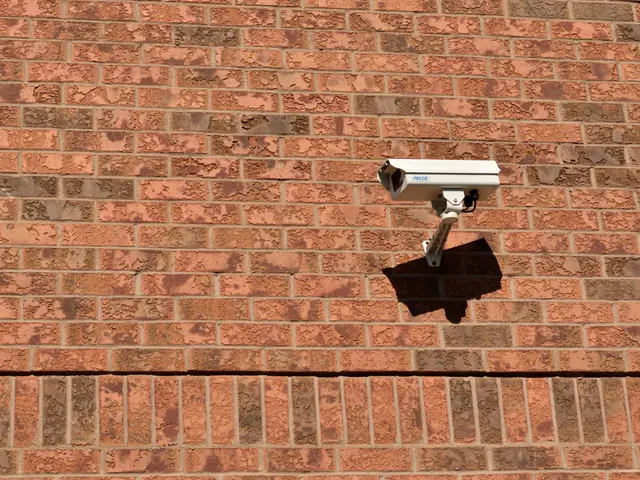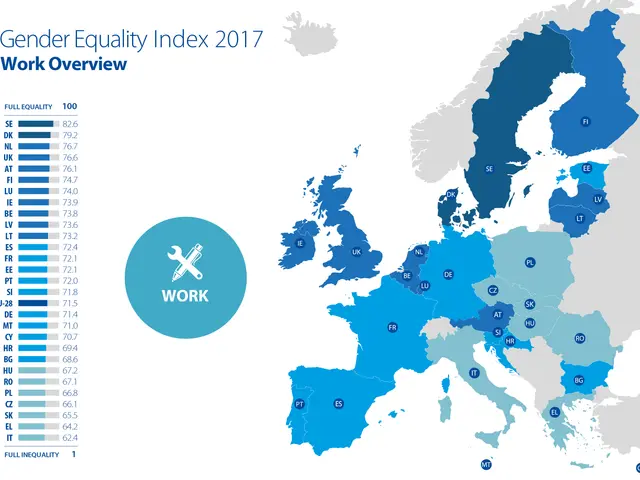Fewer Apartments Built Due to Challenges in Rhineland-Palatinate's Construction Sector
Decrease in New Apartment Construction - Reduced Construction of Fresh Residential Properties
Last year saw a substantial drop in new apartment constructions in Rhineland-Palatinate, with approximately 25% fewer apartments built compared to 2023. The State Statistical Office in Bad Ems reported that around 9,100 new apartments were completed in 2024, contrasting with the 12,100 completed the previous year.
The construction industry has been grappling with a series of complex issues, as pointed out by the Rhineland-Palatinate Ministry of Finance in response to an inquiry. "Geopolitical shifts, scarce resources, and climate protection efforts have turned housing policy into a progressively intricate task," the ministry conveyed.
Recent developments have brought a wave of uncertainties and slowed down apartment construction in certain areas. "Building land scarcity and constantly escalating construction demands have become major hurdles hampering construction activities," the ministry added.
The strikingly reduced building completion figures serve as evidence of resource and skilled labor shortages, resulting in increased construction and craftsmanship costs, according to the statisticians' report.
Approximately 4,000 new residential buildings were registered in 2024, plunging by 27.3% compared to the previous year. About 75% of the newly built residential buildings in 2024 were single-family homes.
The city of Speyer recorded the highest number of apartments per 10,000 inhabitants with 36.6, while Koblenz had the fewest new apartments per capita at 2.9.
Geopolitical Changes and Their Effects
Geopolitical tensions can impose economic stress, jeopardizing construction through increased costs and reduced investment due to high interest rates and bureaucratic barriers[4]. Additionally, global events can disrupt supply chains, impacting the availability and cost of materials crucial for construction.
Resource Scarcity and Its Consequences
Germany is experiencing a significant labor shortage, with a requirement for an additional 400,000 workers in the construction sector by 2025. This workforce deficiency, combined with escalating construction costs due to inflation and material shortages, exacerbates the construction of new housing projects[4][2]. Consequently, these higher costs can translate into higher housing prices, reducing affordability for potential buyers.
The Role of Climate Protection
Germany is adhering to stringent environmental regulations to meet its climate protection targets. These regulations can heighten the complexity and cost of new construction projects, as builders must integrate sustainability and energy-efficient features into their designs[1]. The emphasis on sustainable construction may call for higher upfront costs, but the long-term benefits cannot be overlooked.
Local Efforts in Rhineland-Palatinate
Rhineland-Palatinate benefits from municipal support for development projects and reconstruction work, as well as access to skilled talent, particularly in technology-oriented disciplines, which can streamline construction processes [5].
Overall, while geopolitical and resource challenges pose obstacles, the drive towards climate protection and local support initiatives can foster sustainable, innovative housing construction in Rhineland-Palatinate.
- The Rhineland-Palatinate Ministry of Finance highlighted that geopolitical shifts, scarce resources, and climate protection efforts have made housing policy increasingly complicated, echoing concerns about the slowed down apartment construction in the region.
- The construction sector, including manufacturing and real-estate industries, may face economic challenges due to high interest rates, bureaucratic barriers, and disrupted supply chains as a result of geopolitical tensions, jeopardizing investment in new housing projects.
- Climate protection initiatives call for the integration of sustainability and energy-efficient features into construction projects, which can lead to higher upfront costs but offer long-term benefits, aiding in the creation of more environmentally friendly housing policies.








